"It was supposed to be short and intense" - creator of Superhot defends the game's length and announces free updates
Superhot is an unusual shooter in which time moves only when you move. We talked to Piotr Iwanicki, the Creative Director and CEO of the company, about the huge success of the game and what awaits him in the future.
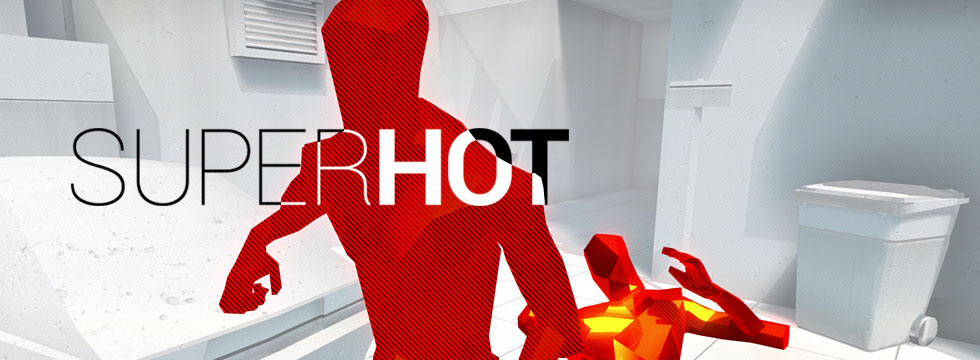
Three weeks after its release, Superhot can be called a success – over 150 thousand of copies sold and 88% of positive reviews on Steam. We’ve had a chance to talk with Piotr Iwanicki – Creative Director and CEO of the company which gave us this unusual shooter. We’ve learned a bit more about the upcoming updates, the Xbox One release, and his personal opinion about the criticism of Superhot. We also asked about the weirdest question sent to the email address hidden in the game.
Lukasz Malik: We all know the origins of Superhot – the game was first developed as part of the 7DFPS competition, then came Kickstarter. Was the crowd-funding campaign that one factor that allowed you to really gain momentum?
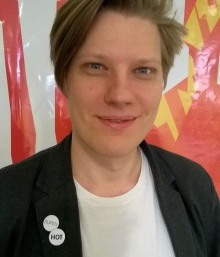
Piotr Iwanicki.
Piotr Iwanicki: We had paid for everything with our private funds, and reached Kickstarer using our own money. After that milestone, we were indeed able to transform the team into a real, working company. This stage was always the most problematic.
When you hear about game development it’s never about the corporate side – while this is an inseparable part of the whole process. And I’m saying this as a developer. To secure the ability to make games on your own terms, you’ve also got to have the formal part sorted out well. That’s a complex subject, and there’s a strong tendency to divide those involved into two groups – the business people, and the creative force.
Do you see yourself as a businessman rather than a developer?
I sure am the CEO, but I’m only responsible for the finances to a small degree. My focus is to keep all the high echelons of the company involved in the creative process; this is something that spreads the right values; causes the team to care about making something special and not just making money.
We want our company to do things perfectly, as good as we can possibly make them. Were it only about the money, it wouldn’t even be worth it – too demanding a job. There are much simpler and more profitable ways of earning money [laughing].
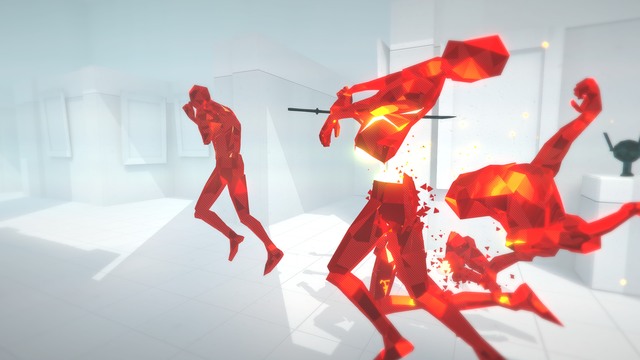
The browser demo of Superhot that went viral around the Web surely helped you a lot in collecting the funds. Do you think that the position of Kickstarter – after a couple of misfired projects – has lost its importance? Is it harder for new teams to get the money? Has crowd-funding lost its impact?
I don’t think it lost the impact, although I haven’t seen the numbers from a statistical standpoint, and I don’t know whether the campaigns are nowadays altogether smaller. The crowd-funding has surely established a sort of equilibrium – it’s no longer such a gold rush; people are more careful – because they’ve gotten disappointed a couple of times. There were many games which promised much more but failed to deliver. The idea of crowd-funding itself is something that will persevere; it’s here to stay. I don’t think it will just disappear.
Would you consider this method of gaining funds again in the future?
Sure, because it’s such a great opportunity to work with the community, and that’s something you can’t stick a price tag on. People who have supported us from the very beginning are the “warriors of Superhot”. They help us a lot, tell their friends about the success; they want to celebrate and to simply be with us. This is very important.
Many innovative mechanics gradually become standard over time – health regeneration, shooting from behind cover etc. What do you feel when you see a game adapting the mechanics of Superhot and utilizing it to its own needs?
I’m very happy. What I don’t like, though, is when people do it wrong. Clones of Superhot are appearing where people just copy its concept – in most cases it’s rather clumsy. When I see a game like that, I’d like to see what folks did differently; see what they improved. Unfortunately, I rarely have such an occasion – “let’s make a cheap mobile copy” is the dominating approach.
I can name at least two games that push this idea further in a cool way, and I’d like to see more of those. For example Shadwen, a stealth game by the developers of Trine. Much respect – they did it really well. I’d be happy to meet them and chat a bit.
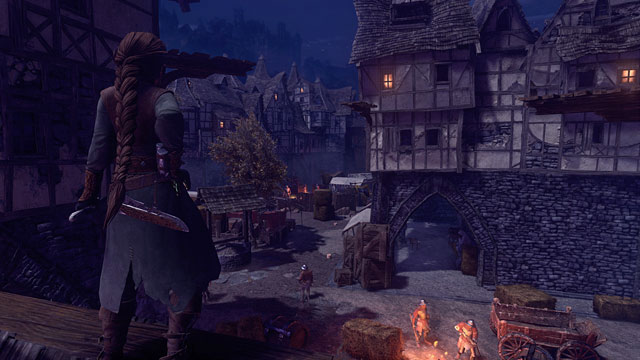
Your plan is to keep supporting Superhot. There’s a randomly generated arena mode coming. Can you elaborate on that?
The idea is still at an early stage, but we just don’t leave a game to itself right after the release. The community enjoyed Superhot, and we want to keep giving them more. This will certainly bring more people in – we want to keep the title fresh for a long time.
People play endless mode a lot – this will be an endless arena mode. I think such randomly generated, more difficult levels will surprise the players, especially if we introduce some novelties – story-wise, for example.
Is the new content going to be free of charge?
Yes. It’s actually becoming the Polish way – that’s what CD Projekt does, and it’s just inspiring. People like that, and we believe that’s the right way. A player pays for a game; it should be a way of spending your free time – something that you can come back to, not just finish once and say goodbye to.
Has Cliff Bleszinski already started working on his level?
During the Games Developers Conference this week we’ll have a chance to meet with him and talk about the details. He’s a busy guy, but we hope that after GDC we’ll have more info to share.
There’s a lot of gifs with some spectacular moments from Superhot floating around the Internet. You have created special tools that facilitate making in-game clips (recording, the Killstagram site), exploiting – once again – the viral spread that the mechanics of the game itself support. Did it influence the design of the game in any way? Did it change the way of developing the levels, or the distribution of the opponents?
Superhot is meant to be spectacular on each level. We provide a lot of freedom in terms of completing every stage.
Short levels are much more relevant due to the nature of Superhot’s mechanics. This works well for the replays, which look pretty intense – you get out of an elevator, and there are enemies coming at you from multiple directions. We could have made it longer, but decided otherwise to promote multiple playthroughs. You can always complete it in a different way, and people play this game in their own, personal style. That’s pretty cool.
Do you think that memes and clips will help to sell and promote Superhot?
It certainly is something to be happy about. It’s easier to share your joy with others in this way. But we have no way of measuring this. Those things generate more interest in Superhot; they are a good supplementation of its mechanics: the game’s life in real-time.
The majority of negative reviews on Steam regards the length and price ratio. Although we know that you don’t generally judge the value of a book by its volume, that’s the way the gamers often see it. Do you find this upsetting as a developer? Is this in any way unfair towards the game?
Each negative opinion hurts, and it hurts to read them. But you can’t escape this feeling – we’d like everyone to enjoy our game. I haven’t come across people who didn’t like Superhot at all. It was supposed to be short and intense. We wanted to give everyone an opportunity to play the game after finishing it, but some just prefer to see the end of the story and put the game back on the shelf.
Many people pay for games but don’t finish them – we hope that everyone will finish Superhot. And then you’re left with a lot of small details that you didn’t notice during a single playthrough – those elements allow you to sink your teeth deeper into this game. That’s not the way everyone saw it, and that’s why some perceive the game to be too short.
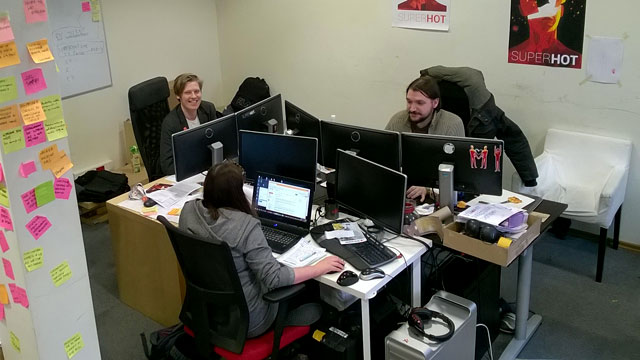
Do you think that gamers were spoiled with the flood of artificially long sandboxes, often full of repetitive content?
With regard to the craftsmanship – that’s a problem. You can see that people want to see such “filler content” that’s both vast and pointless. That’s what we wanted to avoid – we wanted to make sure that each level is hyper-intensive; that there’s no repetitiveness whatsoever. The game is supposed to evolve naturally and stay fresh as long as possible.
But, as I’ve already mentioned, there are many types of players and everyone has their expectations. If you want a sandbox that will provide many hours of storyline – this is not it; the game just wasn’t built like that. Nevertheless, most players read our intentions correctly and see the real value of this game, thanks to which they’re able to derive fun from Superhot.
Have you had a lot of refunds on Steam?
Some people demand a refund, but that’s an integral part of a game’s life on Steam. It’s only natural that people sometimes wish to return the game, and that’s ok.
Some devs stated that, to some extent, everyone’s now dependent on Steam – to release a game on PC, you have to use Valve’s platform. Steam currently has a 70% share in the market – do you find this an issue?
The developers always depend on some kind of publishers – the people who have shelves in their stores. That’s how it has always been, and Steam is just another shelf like that. Sure, you can sell your stuff on the street, but it’s better to do it on a grander scale – in a supermarket, which probably will demand a share of the profits, but the sale will be much more efficient.
The majority of copies of Superhot was sold on Steam, so true, we are somewhat dependant on that platform. But our focus is the community – building and maintaining relations with the fans is the priority.
Selling your game on Steam means that people will have insight into the numbers of copies sold thanks to SteamSpy. Are you OK with that?
Steam is a great marketing utility. For the developers it’s invaluable, especially in case of niche titles – the devs can see that such games sell well, and the outcome can only be positive for the players. It’s apparent that games that are weird and more daring sell extremely good and have their tight-knit communities.
When can we expect the Xbox One version?
In about a month. We’re undergoing verification at this point. There already is a running version for Xbox, there are only some technical tweaks left. Microsoft provides a long list of requirements that the game has to meet. They’re often kind of bizarre, but they’re meant to keep the games consistent throughout the platform.
Playing Superhot on a gaming pad is an entirely different experience, very cool in many aspects – it allows more precise, slower moves, which changes the feel of the game. It’s a totally different thing.
Is the content identical to the PC release? Will the DLCs come out simultaneously on both platforms?
Yes.
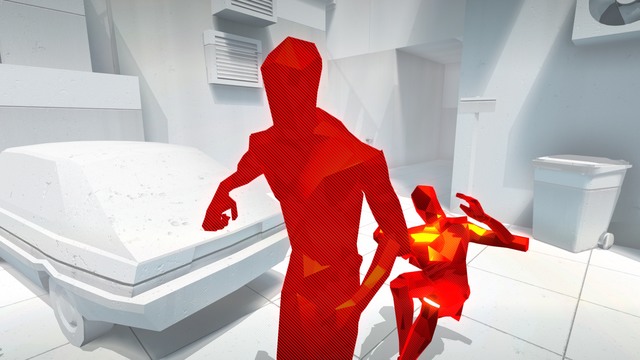
You’ve also mentioned a VR version. At what stage of development is it?
Our main concern now is the hardware. There’s a massive potential here; we can do many awesome things. Nothing seems to indicate that the game won’t be running smoothly. But you know – you can never be sure with video games. I’ve seen some amazing things in VR, but I cannot talk about this.
Your version would be dedicated to Oculus or HTC Vive? Perhaps both?
Won’t say a word about this. [laughing]
So let’s talk about it in more general terms; do you think that VR gaming is only going to be a toy for the wealthy? We know what the prices are; at the same time it’s hard to tell for how long can you actually play in that helmet comfortably.
That’s an interesting topic. There hasn’t been too many people who were able to test VR on a “permanent” basis. There are a lot of demos and expositions – it works great there. But what is yet to be seen is how it will function at people’s homes, as a part of the daily experience. I think that VR still has to find its path, and that it won’t work out with every genre. One of the issues is the movement of the avatar in the virtual world – while it’s moving and doing different things, the player is just sitting. That’s a problem that is yet to be tackled.
Maybe the right way is to develop totally different things for VR, because such a “flagship” game still doesn’t exist. I do believe, however, that it will one day be released and will expand the idea of VR. Surely we, the developers, will play our part in that process.
Finally, tell us what’s on your mind nowadays. Staying in the world of Superhot? An entirely new project? What would you like to focus on?
We are going to work with Superhot until the end of the year; we have many things ahead of us when it comes to the game. This is a nice job, especially when you see that people enjoy the outcome. I love to see how engaged our community is; one of the game’s secrets contains my email address. People send all kinds of questions every day, and I try to answer them.
What was the weirdest question you got?
“How to cope with anxiety and depression?”
What did you say?
Something honest and simple. I really enjoy this interaction with people because you know – games are often made to be “pressed”, boxed, and forgotten. We’re really happy about this dialogue with the players.
What about future projects? Will there be any official announcement this year?
Yes. We’re not sure what exactly it is going to be, but there’ll be something. While working on updates, we will consider different possibilities. We want to continue the policy of “mad ideas”, to do things differently. I think that the announcement will come sooner rather than later – we won’t be able to resist sharing the news with the players.